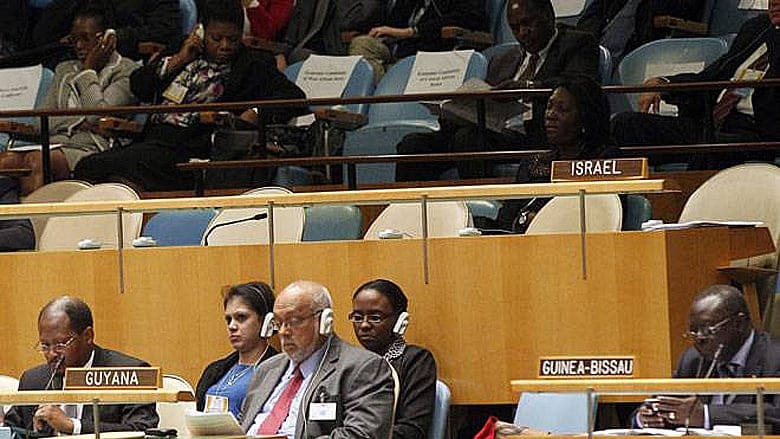Anti-Israel ‘double standard’ at the UN

(CNSNews.com) – The United Nations' response to various situations of occupation and settlements around the world is extraordinarily uneven, with Israel virtually alone in the world body's crosshairs, a comprehensive new research study shows.
An examination of seven other prolonged occupations arising during armed conflict – ranging from Turkey in northern Cyprus to Russia in Crimea – finds that in no other case is the country concerned formally described in U.N. General Assembly resolutions as an "Occupying Power."

